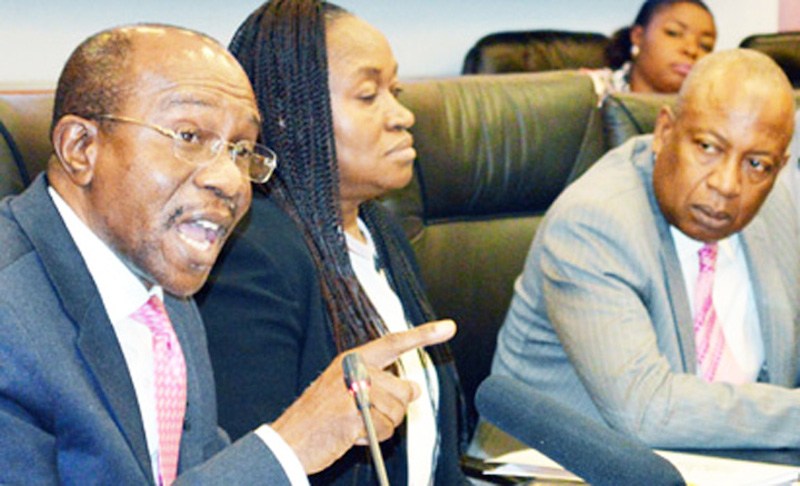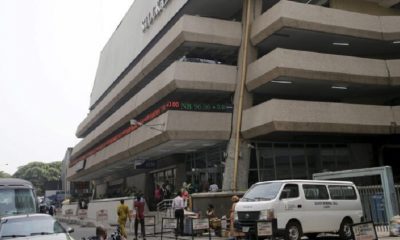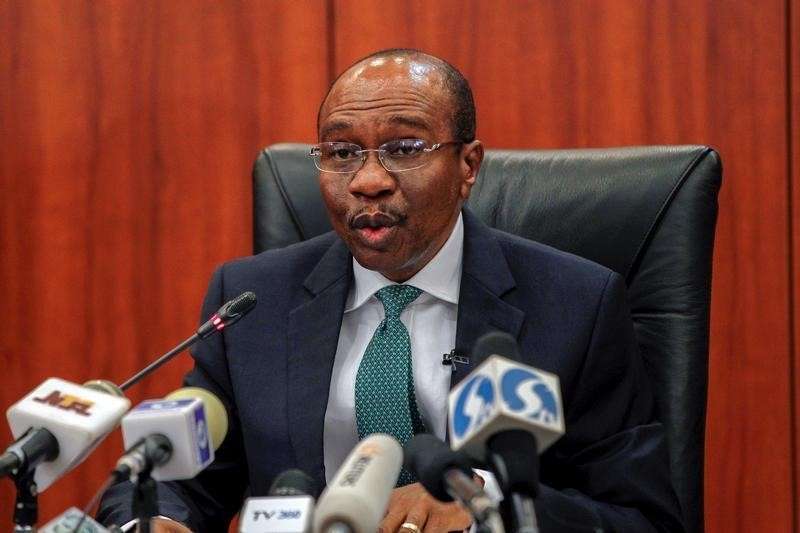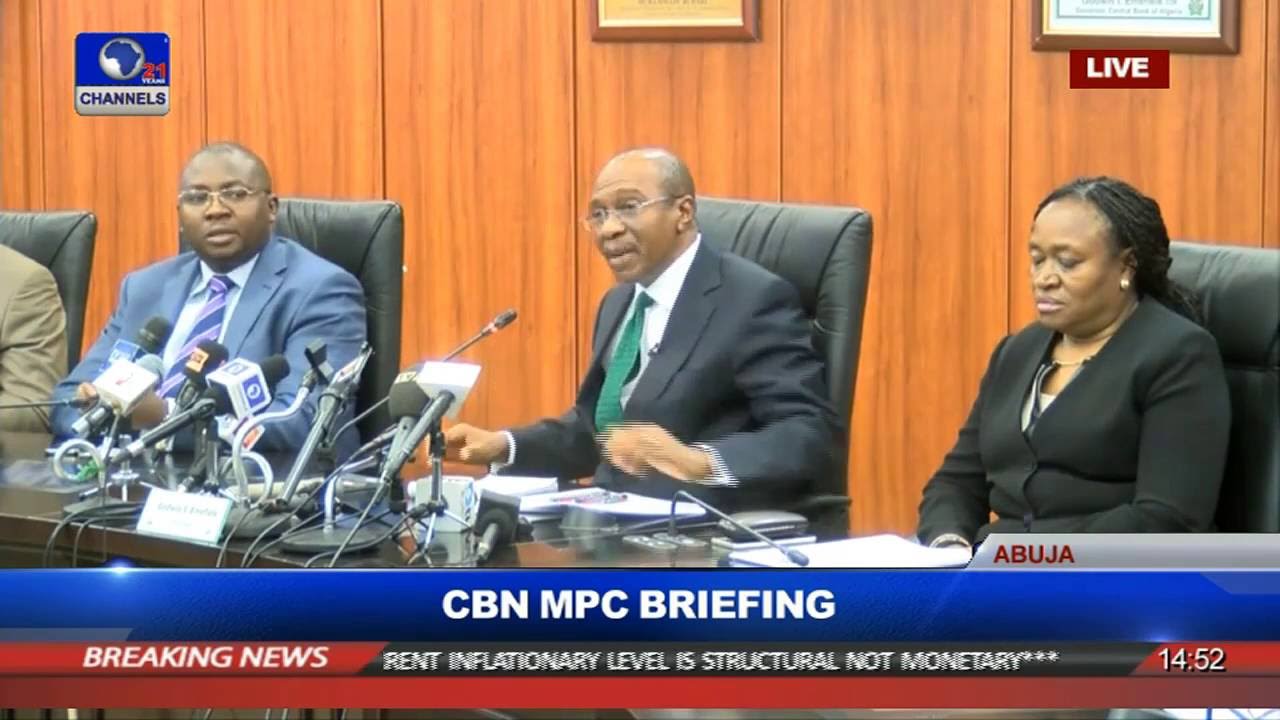Economy
MPC May Delay Hike in Rates Until January 2019—FSDH

By Dipo Olowookere
Ahead of the Monetary Policy Committee (MPC) meeting of the Central Bank of Nigeria (CBN), which kicks off tomorrow, analysts at Lagos-based FSDH Research have said the apex bank may not tamper with the monetary policy rate (MPR) until its January 2019 meeting.
Though the company noted that rising demand for foreign exchange leading to a consistent decline in the foreign reserves, and rising inflation rate were major justifications for an increase in policy rates, it maintained that the CBN may continue to use the conduct of Open Market Operations (OMO) to manage the temporary liquidity in the financial system that may affect price stability.
Business Post recalls that at its meeting in September 2018, the MPC maintained the MPR at 14 percent, with the asymmetric corridor at +200 and -500 basis points around the MPR; the Cash Reserve Ratio (CRR) at 22.50 percent and the Liquidity Ratio (LR) at 30 percent.
According to FSDH, a review of the global economy shows that global growth remains fairly strong, but trade restrictions may reduce global growth. This is according to the International Monetary Fund (IMF), which projects a global growth rate of 3.7 percent for 2018 and 2019.
The growth rate forecast is slightly lower than the growth rate projections the IMF released in July 2018. Although FSDH Research notes that despite the recent drop in the price of crude oil on the international market, the moderately strong global growth should sustain global crude oil prices around $70/b in the short-term.
FSDH Research says it expects the Federal Open Market Committee (FOMC) of the US Federal Reserve to raise the Federal Funds Rate (Fed Rate) by 0.25 percent when the committee meets in December 2018.
The October 2018 US unemployment rate at 3.7 percent (lower than the target of 6.5 percent), inflation rate of 2.5 percent (higher than the target of 2 percent) and the growth of 3.5 percent in the economy all support arguments for an interest rate increase.
The investment firm said an increase in the Fed Rate may further place additional demand pressure on foreign exchange in Nigeria and possibly increase capital flight from emerging markets. Thus, a rate cut in Nigeria is not appropriate under these situations.
It said the short-term forecast for the Nigerian economy shows that economic growth remains fragile. The IMF forecasts growth rates of 1.9 percent and 2.3 percent in 2018 and 2019 respectively. These growth rates are lower than the Nigerian population growth rate. Thus, the economy needs policy stimulus to record a growth rate that is inclusive. Nevertheless, monetary policy easing in the form of an interest rate cut may not stimulate growth. Appropriate fiscal measures and incentives that will improve the ease of doing business in Nigeria will lay strong foundation for sustainable growth.
The Purchasing Managers’ Index (PMI) survey published by the CBN for the month of October 2018 expanded at a faster rate. FSDH Research attributes the expansion in the PMI to the increased economic activities that are usually associated with the last quarter of the year.
FSDH Research said it observed a consistent drawdown in the external reserves in order to maintain foreign exchange rate stability in Nigeria.
The CBN increased the supply of foreign exchange at the Investors’ and Exporters’ Foreign Exchange Window and increased the yield at the OMO to dowse demand pressure at the foreign exchange market.
Consequently, the drawdowns from the external reserves continued until November 2018. CBN remained the largest supplier of foreign exchange at the I & E window in the last three months.
FSDH Research noted that an attractive Nigerian Treasury Bill (NTB) yield around the current level of 16 percent may help to attract foreign portfolio investment and reduce capital flight.
Nevertheless, there is a need for deliberate fiscal measures and engagements that will promote non-oil exports that attract foreign investment into Nigeria and will guarantee foreign exchange stability.
The inflation rate increased to 11.28 percent in September 2018, the second increase since January 2017, principally due to the increase in the Food Index.
FSDH Research says it expects inflation rate to increase marginally to 11.34 percent in October and to end the year 2018 at 11.7 percent.
It said an increase in food prices, electioneering spending, and a possible increase in the minimum wage, are potential factors that will influence the direction of the inflation rate in the next three months.
Despite the expected rise in the inflation rate, it will be difficult for a hike in the interest rate to stem the rising inflation rate, as the cause of the rising inflation rate is not within the scope of monetary policy.
According to FSDH, the MPC may deal with the possible negative impact of an increase in the minimum wage at its January 2019 meeting. Thus a hold decision may be appropriate.
Data from the CBN shows that the key monetary aggregates in the country are below the target the CBN sets for the country. This development supports an argument for an expansionary policy to boost credit creation.
However, the current structural rigidities in the economy do not support strong credit growth. Therefore, unconventional policies are required to boost credit creation and business expansion to stimulate growth.
Measures that remove the risks inherent in the economy will encourage credit expansion and this will support sustainable growth.
Economy
Nigeria Investment Fund, Japan Unveil $50m Innovation Fund for Startups

By Adedapo Adesanya
The Nigeria Investment Authority (NSIA) and Japan International Cooperation Agency (JICA) have finalised agreements to launch a $50 Sovereignmillion impact innovation fund aimed at strengthening the Nigerian start-up ecosystem.
The fund is expected to provide patient capital to pre-seed, seed, and early-stage startups addressing critical social challenges in sectors such as agriculture, healthcare, education, energy, waste and water management.
JICA will provide $14 million in grant support, while NSIA contributes up to $20 million to match the grant.
Structured as an onshore public fund, the initiative combines financial support with technical assistance to help startups refine products, scale operations, and expand into new markets.
The fund is expected to create jobs, improve livelihoods, and contribute to sustainable economic development across Nigeria.
Speaking at the agreement signing ceremony between NSIA and JICA at the Ministry of Budget and Economic Planning, Mr Aminu Umar-Sadiq, the chief executive of NSIA, said: “The Fund represents a transformative step for Nigeria’s startup ecosystem. By providing early-stage ventures in high-impact sectors with the capital and support they need to grow, we are enabling innovators to tackle some of Nigeria’s most pressing challenges. Our collaboration with JICA underscores our commitment to entrepreneurship, inclusive growth, and sustainable development.”
Preparations are underway to operationalise the Fund and develop a pipeline of high-impact startups ready for investment. NSIA remains committed to advancing socio-economic development through strategic partnerships that scale impact, expand innovative solutions, and unlock access to capital.
On his part, the Japanese Ambassador to Nigeria, Mr Suzuki Hideo, said, “The Government of Japan hopes this new project will take root in Nigeria and bear fruit swiftly.”
Economy
Seven Price Gainers Boost NASD OTC Bourse by 2.19%

By Adedapo Adesanya
Seven price gainers flipped recent declines at the NASD Over-the-Counter (OTC) Securities Exchange, raising the alternative stock market by 2.19 per cent on Friday.
According to data, the market capitalisation added N51.24 billion to end N2.389 trillion compared with the previous day’s N2.338 trillion, while the NASD Unlisted Security Index (NSI) climbed 85.65 points to close at 3,994.32 points, in contrast to the 3,908.67 points it ended a day earlier.
Business Post reports that the advancers were led by MRS Oil Plc, which improved its value by N13.00 to N200.00 per share from N187.00 per share, FrieslandCampina Wamco Nigeria Plc gained N7.40 to settle at N91.55 per unit versus the previous day’s N84.15 per unit, Central Securities Clearing System (CSCS) Plc appreciated by N6.08 to N71.00 per share from N64.92 per share, Afriland Properties Plc added 66 Kobo to finish at N17.17 per unit versus N16.51 per unit, IPWA Plc rose 37 Kobo to N4.15 per share from N3.78 per share, First Trust Mortgage Bank Plc grew by 11 Kobo to N1.20 per unit from N1.09 per unit, and Food Concepts Plc went up by 10obo to N3.70 per share from N3.60 per share.
On the flip side, there were two price losers led by Geo-Fluids Plc, which depreciated by 28 Kobo to N3.32 per unit from N3.60 per unit, and Industrial and General Insurance (IGI) Plc dropped 5 Kobo to sell at 45 Kobo per share from 50 Kobo per share.
Yesterday, the volume of trades went down by 92.0 per cent to 3.7 million units from 45.8 million units, the value of transactions fell by 59.4 per cent to N84.5 million from N208.2 million, while the number of deals went up by 7.7 per cent to 42 deals from 39 deals.
CSCS Plc remained the most traded stock by value (year-to-date) with 32.6 million units exchanged for N1.9 billion, trailed by Geo-Fluids Plc with 119.6 million units valued at N470.3 million, and Resourcery Plc with 1.05 billion units traded at N408.6 million.
Resourcery Plc closed the day as the most traded stock by volume (year-to-date) with 1.05 billion units sold for N408.7 million, followed by Geo-Fluids Plc with 119.6 million units worth N470.3 million, and CSCS Plc with 32.6 million units worth N1.9 billion.
Economy
FX Demand Worries Weaken Naira to N1,346/$1 at Official Market

By Adedapo Adesanya
The Naira weakened further against the United States Dollar in the Nigerian Autonomous Foreign Exchange Market (NAFEX) on Friday, February 20, by N4.97 or 0.37 per cent to N1,346.32/$1 from the N1,341.35/$1 it was transacted on Thursday.
Heightened FX demand tilted the market toward the downside yesterday, exerting upward pressure on rates despite efforts by the Central Bank of Nigeria (CBN) to stabilise the foreign exchange market.
Also in the official market, the domestic currency depreciated against the Pound Sterling during the session by N9.39 to sell for N1,815.25/£1 versus the previous day’s N1,805.86/£1, and lost N7.33 against the Euro to close at N1,584.62/€1 compared with the preceding session’s N1,577.29/€1.
The story was not different for the Nigerian Naira at the GTBank FX desk, where it depleted against the Dollar by N7 on Friday to quote at N1,356/$1 versus the N1,349/$1 it was sold a day earlier, but remained unchanged in the black market at N1,370/$1.
It was observed that risky sentiment among Foreign Portfolio Investors (FPIs) contributed to the FX market, amid fears of hot money flight due to capital gains tax and other factors.
As for the cryptocurrency market, it was mostly green yesterday in reaction to a Supreme Court verdict dismissing a fresh 10 per cent global levy by President Donald Trump.
The apex court on Friday described Mr Trump’s global tariff rollout as illegal. The decision did not clarify what should happen to tariff revenue already collected, and it doesn’t necessarily spell the end of the trade agenda, with multiple legal and executive avenues still available.
Litecoin (LTC) grew 2.7 per cent to $55.00, Cardano (ADA) appreciated 2.6 per cent to trade at $0.2815, Binance Coin (BNB) expanded by 2.6 per cent to $627.19, Dogecoin (DOGE) recouped 1.3 per cent to quote at $0.1, Ripple (XRP) jumped 0.7 per cent to $1.43, Solana (SOL) improved by 0.5 per cent to $84.15, and Ethereum (ETH) soared 0.1 per cent to $1,962.78.
However, Bitcoin (BTC) lost 0.2 per cent to sell for $67,850.49, while the US Dollar Tether (USDT) and the US Dollar Coin (USDC) traded flat at $1.00 each.
-

 Feature/OPED6 years ago
Feature/OPED6 years agoDavos was Different this year
-
Travel/Tourism10 years ago
Lagos Seals Western Lodge Hotel In Ikorodu
-

 Showbiz3 years ago
Showbiz3 years agoEstranged Lover Releases Videos of Empress Njamah Bathing
-

 Banking8 years ago
Banking8 years agoSort Codes of GTBank Branches in Nigeria
-

 Economy3 years ago
Economy3 years agoSubsidy Removal: CNG at N130 Per Litre Cheaper Than Petrol—IPMAN
-

 Banking3 years ago
Banking3 years agoSort Codes of UBA Branches in Nigeria
-

 Banking3 years ago
Banking3 years agoFirst Bank Announces Planned Downtime
-

 Sports3 years ago
Sports3 years agoHighest Paid Nigerian Footballer – How Much Do Nigerian Footballers Earn


















